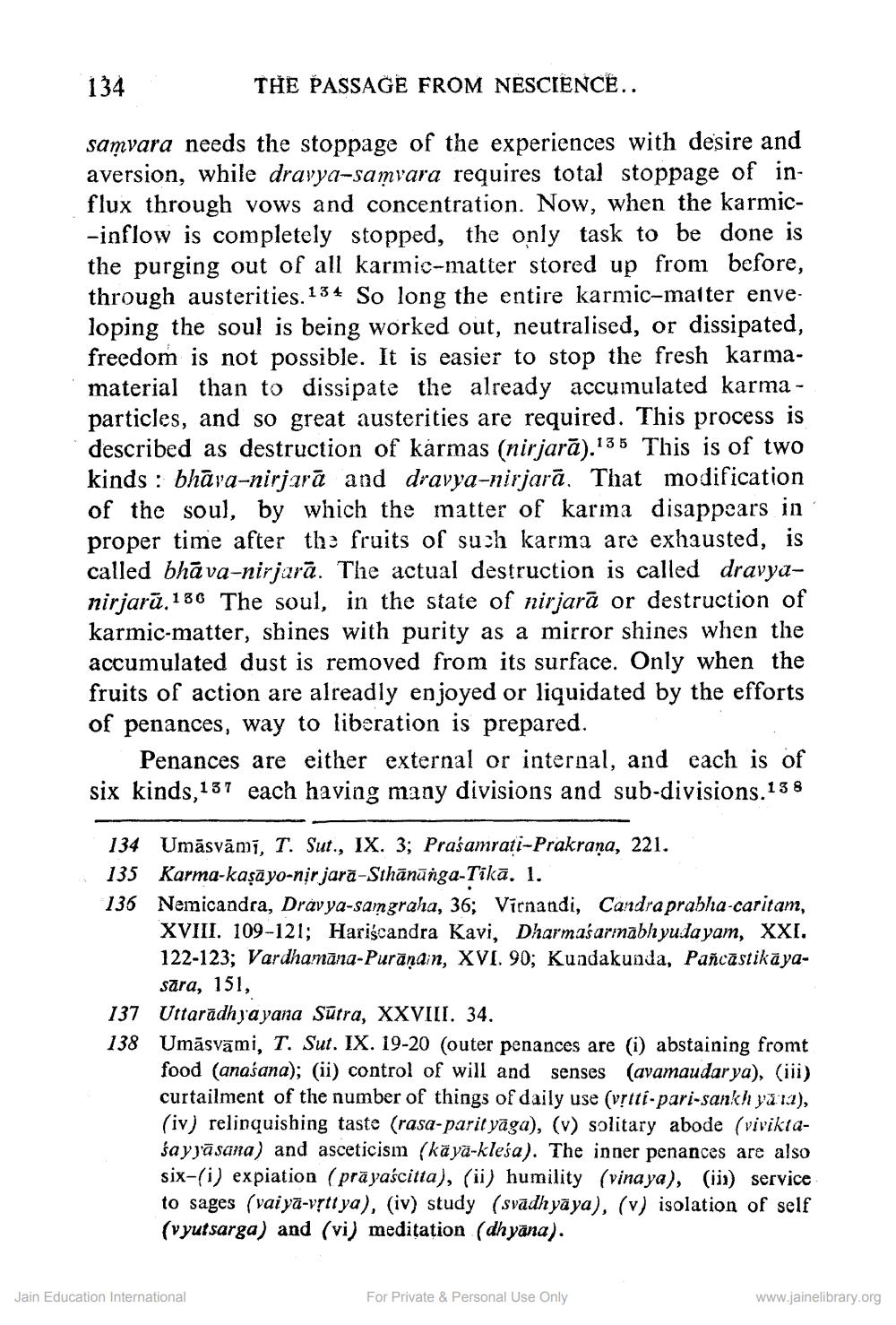________________
134
THE PASSAGE FROM NESCIENCË..
samvara needs the stoppage of the experiences with desire and aversion, while dravya-samvara requires total stoppage of influx through vows and concentration. Now, when the karmic-inflow is completely stopped, the only task to be done is the purging out of all karmic-matter stored up from before, through austerities. 1 3 4 So long the entire karmic-matter enveloping the soul is being worked out, neutralised, or dissipated, freedom is not possible. It is easier to stop the fresh karmamaterial than to dissipate the already accumulated karmaparticles, and so great austerities are required. This process is described as destruction of karmas (nirjarā).135 This is of two kinds : bhāva-nirjarā and dravya-nirjarā. That modification of the soul, by which the matter of karma disappears in proper time after the fruits of such karma are exhausted, is called bhāva-nirjarā. The actual destruction is called dravyanirjarā. 186 The soul, in the state of nirjarā or destruction of karmic-matter, shines with purity as a mirror shines when the accumulated dust is removed from its surface. Only when the fruits of action are alreadly enjoyed or liquidated by the efforts of penances, way to liberation is prepared.
Penances are either external or internal, and each is of six kinds,137 each having many divisions and sub-divisions.138
134 Umāsvāmī, T. Sut., IX. 3; Praśamrați-Prakrana, 221. 135 Karma-kaşãyo-nir jarð-Sthānūnga-Tikā. 1. 136 Nemicandra, Dravya-samgraha, 36; Virnandi, Candra prabha-caritam,
XVIII. 109-121; Hariscandra Kavi, Dharmasarmabhyudayam, XXI. 122-123; Vardhamana-Purändin, XVI. 90; Kundakunda, Pañcāstikāya
sara, 151, 137 Uttarādhya yana Sūtra, XXVIII. 34. 138 Umāsvāmi, T. Sut. IX. 19-20 (outer penances are (i) abstaining fromt
food (anaśana); (ii) control of will and senses (avamaudar ya), (iii) curtailment of the number of things of daily use (vịtti-pari-sankh yana), (iv) relinquishing taste (rasa-parit yāga), (v) solitary abode (viviktaśayjāsana) and asceticism (käya-klesa). The inner penances are also six-(i) expiation (prāyaścitta), (ii) humility (vina ya), (iii) service to sages (vai ya-výtt ya), (iv) study (svadhyāya), (v) isolation of self (vyutsarga) and (vi) meditation (dhyana).
Jain Education International
For Private & Personal Use Only
www.jainelibrary.org




